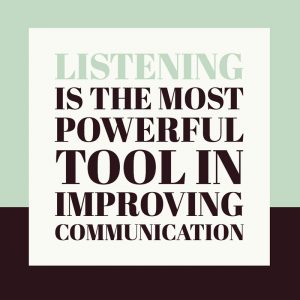 Have you ever had a problem with computer software and called someone for help? Some of those experiences are great, but most are less than desirable.
Have you ever had a problem with computer software and called someone for help? Some of those experiences are great, but most are less than desirable.
For over 20 years, I taught communication skills to technical support representatives who needed to understand communication basics and how to handle angry customers.
What I Learned From the Corporate World
Some years back, I was in the midst of a “discussion” with my wife when I realized I was using the same techniques I’d taught a team of support reps earlier that day. In that moment, I learned a life lessons that has since altered my business.
I realized that the skills required for excellence in corporate and customer communications are remarkably useful in marriages. In fact, this is true in every conversation—whether a with member of your family, a person at work, or even the person taking your order at a restaurant.
No where are these communication strategies I had been teaching to companies more important to remember than when you are in a conversation with your spouse. Here are three examples of this:
1. Effective communication is hard work
During my classes, I would quote statistics showing 90% of all communication is filtered out. Research shows that our brains process information differently.
It was startling when I first realized that communication was not totally up to me.
How my wife heard my message wasn’t based on what I said, but how she processed it through her filters and experiences. It’s like driving a hydroplaning car. You turn the steering wheel, but the car doesn’t react as expected.
2. Perfect words don’t make perfect communication
Communicating is more than the words we use. In fact, they make up a very small portion of the other person’s understanding.
Things like body language and tone impact the conversation much more. Why? Body language and tone, which we may use knowingly or unknowingly, show more of the message from deep inside us than our words.
3. Stop! Don’t answer—listen
Support representatives have the answers people need. Too often they want to jump to the answer and not listen for the problem.
I found myself doing the same thing with my spouse, mistakenly thinking the quicker I came up with a solution the happier my wife would be.
The problem is, if you do not listen, you can give the wrong answer, ultimately creating bigger problems. Listening is the most power tool in improving communication, and yet it is the hardest.
The Beginning of Good Marital Communication
Listening is the one skill everyone will use their entire lives and is never formally taught. We quickly learn how to focus on ourselves and not how to listen. The most anyone ever does is tell you, “look at me when I am talking.”
Let’s face it—we are all guilty of sometimes looking at our spouse while not actually hearing a word they say.
Take the effort to stop focusing on yourself and listen. That is the beginning of good marital communications. From my own mistakes and successes, I know this to be true and would not trade this revelation for anything.





